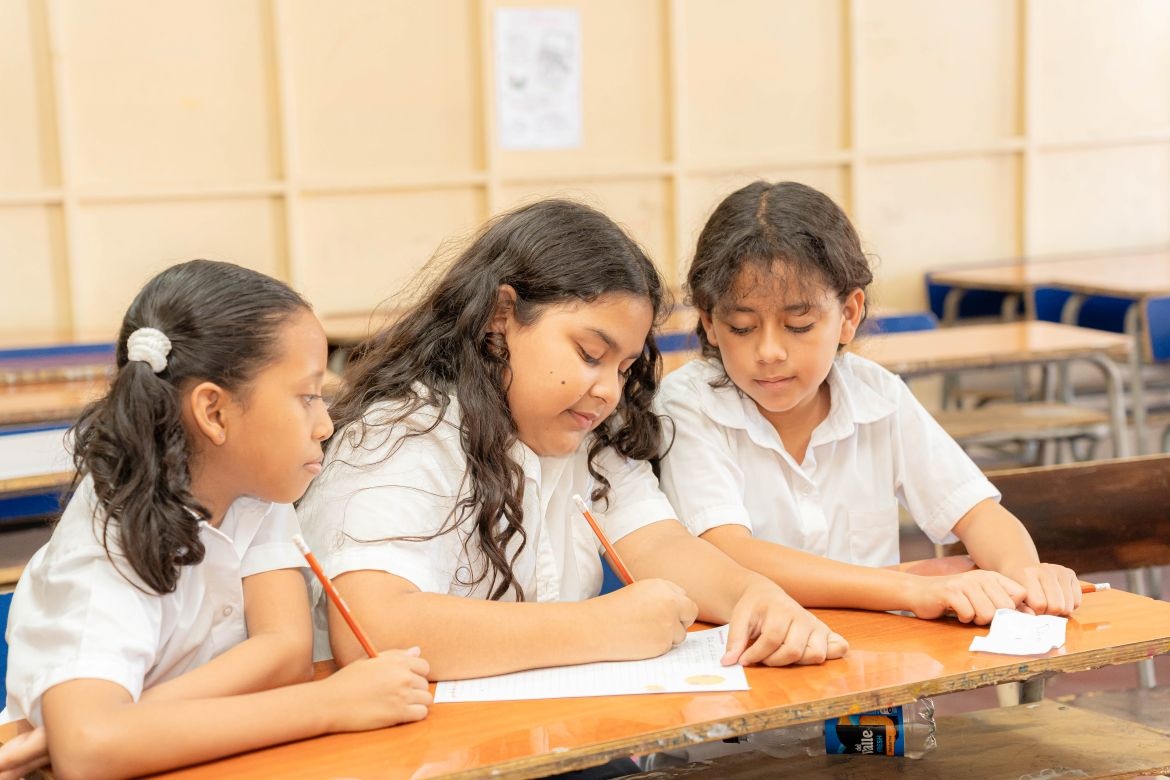
Education is more than just a path to academic success in Latin America, where more than 10 million children and adolescents are at risk of dropping out of school. It is also a lifeline. Particularly in Central America, where child poverty rates exceed 50% in some countries, public schools often struggle with overcrowding, poor infrastructure and limited psychosocial support.
Amid these challenges, Glasswing International’s community schools model has emerged as a comprehensive strategy to transform schools into inclusive, safe and supportive environments.
Originally inspired by broader community school approaches seen in the US, this model has been adapted to the specific conditions of Central and Latin America where schools often serve as the only structured and protective spaces available for children.
In these contexts, the strategy goes beyond extended learning time or academic enrichment: it becomes a space for social cohesion and helps young people to develop hope and higher expectations for their future.
Glasswing’s community schools strategy transforms public schools, particularly those in rural and urban communities that are at risk and in some areas with a significant indigenous population, into safe, inclusive spaces where teachers, students, families, and community members are all committed to expanding learning and development opportunities and creating safe environments. Schools are selected through a rigorous process to ensure leadership commitment, safety, adequate infrastructure and willingness to host a dedicated school coordinator who oversees program activities in coordination with the educational community.
Teachers participating in the program receive training in active learning methodologies and restorative practices, integrating these approaches into both classroom teaching and extracurricular activities.
Community school model components include: after-school clubs, academic tutoring, leadership opportunities, mental health promotion and community-based initiatives—all supported by trained volunteers from the local community or partner organizations and in collaboration with teachers.
Funding comes from a combination of private sector partnerships, international cooperations and individual donors.
In 2024 alone, the model directly reached over 10,500 students.
Implementation is adapted to each country’s context and carried out in close collaboration with ministries of education and school authorities which help promote protective systems such as safe learning environments and encourage meaningful family engagement through parent workshops and community events.
These efforts ensure that schools become inclusive and protective spaces where students can thrive academically and emotionally while sustaining long-term impact and responding to local needs.
Glasswing contributes to broader efforts to achieve Sustainable Development Goal 4 by partnering with education ministries and supporting systemic innovations like community-based learning and inclusive after-school models. The model has also been the subject of multiple country-level evaluations, particularly in El Salvador, where randomized controlled trials and mixed-method studies conducted by institutions such as the World Bank have shown positive results among participants (see here for reducing school violence in Central America through social-emotional learning; here for after-school programs in El Salvador; and here for an intervention for vulnerable students ages 10 to 16).
Even in high-violence settings, the model’s effectiveness in fostering socio-emotional development is demonstrated by these findings. Building environments where youth can prosper
The fact that 73.5 percent of students believe their school environment is a place where they can develop, learn, and be themselves is one of the survey’s most significant findings. This goes beyond just physical safety. Students consistently reported feeling emotionally supported and respected by teachers and peers, whether in the classroom or during after-school club activities.
In Guatemala, for instance, 72.4% of students reported feeling safe and respected in their school environment.
In both class and club activities, they emphasized the emotional support they receive from peers and teachers. These safe and inclusive conditions were present in most schools, where students emphasized how the program had helped them express themselves more openly and feel more secure in their identities.
Students have been empowered to actively engage in their communities as a result of their participation in leadership and debate clubs. Many talked about helping friends, settling conflicts calmly, taking the lead in school activities and feeling more comfortable sharing their emotions.
These changes matter not just for school, but for life. They show growth in empathy, communication and managing emotions.
Becoming more engaged learners
Whether through academic reinforcement, the arts or sports, extracurricular clubs are sparking curiosity and motivation among students.
This renewed energy is translating into real outcomes: students reported better academic performance, greater interest in learning and even new dreams for the future.
In Honduras, for example, 96.8% of students who participated in tutoring clubs reported that these activities helped them improve their academic performance.
Specifically, 71.1% said the support helped them complete homework correctly, 25.7% said it helped them pass certain subjects and 22.5% attributed passing their school year directly to these sessions.
This shows how tailored academic support, when combined with emotional encouragement, can significantly influence students’ educational outcomes.




